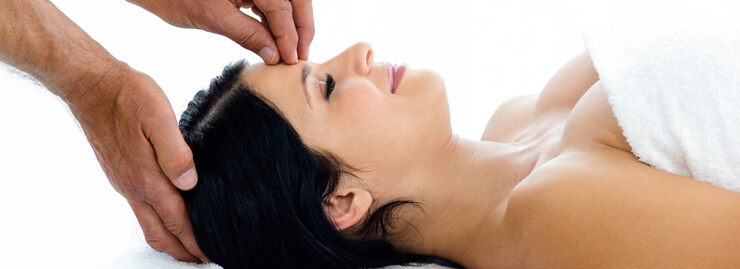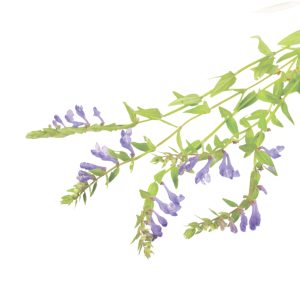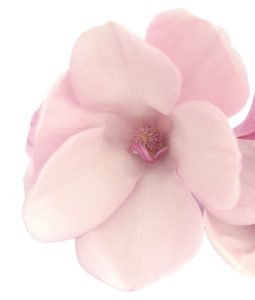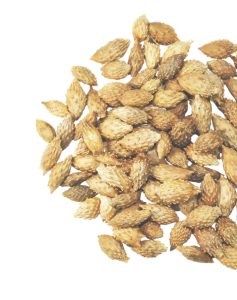- WE MOVED !!!
-
 Professional Acupuncture & Physical Therapy1118 East Superior Street
Professional Acupuncture & Physical Therapy1118 East Superior Street
Duluth, MN 55802(218) 724-3400 Clinic Hours
Mon8:00 am - 4:30 pmTue1:45 pm - 4:30 pmWed8:00 am - 4:30 pmThu8:00 am - 4:30 pmFriCLOSED

- Long Covid Booklet
Traditional Chinese Medicine
TCM and Summer

Summer is a time of abundant energy, long sunshine-filled days and warmth. In Traditional Chinese Medicine, summer has many different associations that help define it. The element of summer is fire, the color of summer is red, the emotion of summer is joy and the governing organs are the heart and the small intestine. But what does all of this mean? Let’s find out.
The TCM system relies heavily on the five elements and how they work and interact within the body. In TCM, there are multiple levels. The first is that of yin and yang. At the most basic level, yin is like water and yang is like fire. As mentioned, fire is the element of summer. Thus fire is yang in nature, which means it is symbolic of maximum activity. During the summer months, everybody and everything is more outgoing or outward in nature. And as the heart is the main organ associated with the season of summer, it should be paid close attention to and nourished to remain healthy.
The heart’s main function is to circulate oxygen-rich blood throughout the body. In TCM, mental activity is also associated with the heart. This is known as Shen in Chinese medicine. The Shen is sometimes compared to our mind, but it is actually much deeper than that. The Shen includes our thought processes, memory, consciousness and emotional well-being. And summer is the most appropriate time to calm the Shen and provide it with enrichment that will last throughout the whole year. When the fire element is balanced, the mind is calm, sleep is sound and the heart organ is strong and healthy. If the fire element is not balanced, there may be depression or an excess of joy, which manifests as mania. Symptoms of an unbalanced fire element include heartburn, insomnia, agitation, nervousness, digestive upset, rashes, palpitations and excessive perspiration.
There are quite a few ways to keep the heart and fire element balanced during the summer months. Meditation and deep breathing are easy to do, plus, they require no expensive equipment to perform and can be done anywhere.
Going outside and engaging all of your senses is another easy way to nourish heart health. A technique known as “grounding” has been gaining popularity over the past decade and science is showing it can be very beneficial. All one has to do is walk or stand in the grass while being barefoot. The energy from the earth is quite healing. And while you’re there, take time to listen to the sounds of nature that surround you and enjoy the fragrances of the flowers. These things are also grounding and have a calming effect on the mind and body.
 Probably the two most important things you can do for heart health during the summer months is drink plenty of fresh water and eat cooling foods. No matter what season of the year, water is vital and it is recommended we drink at least 64 ounces per day. Cooling foods like fruits are good at keeping fire under control, which is healthy for the whole body.
Probably the two most important things you can do for heart health during the summer months is drink plenty of fresh water and eat cooling foods. No matter what season of the year, water is vital and it is recommended we drink at least 64 ounces per day. Cooling foods like fruits are good at keeping fire under control, which is healthy for the whole body.
Lastly, if you are experiencing a heart or fire imbalance, consider adding acupuncture to your routine. Acupuncture is very good at reducing or increasing the body’s yang/fire, depending upon your individual needs. Call Heidi today at (218) 724-3400 to learn more.
Three Teas to Keep You Cool
As summer moves on and the warmer days continue, you will find yourself seeking ways to beat the heat. Herbal teas are a great way to cool both the body and mind. Cooling herbal teas can alleviate symptoms of excess heat and have you feeling your absolute best during these heat-intensive summer days.
Check out these three herbal teas that will ensure you stay cool.
- Mint, Elderflower and Rosehips TeaThe combination of mint, elderflower and rosehips makes for a soothing herbal tea. Rose hips provide a much-needed boost of vitamin C, the elderflower lends its immune-cleansing benefits and the mint finishes off the tea with the cooling touch of menthol.
- Lemon Hibiscus TeaThis is an herbal blend just as good cold as it is hot. Regardless of the way this tea is poured, it provides specific cooling benefits to the body. Hibiscus is high in vitamin C and combats against high blood pressure, liver disease and other ailments. Lemon has a kick of vitamin C too, but more importantly it is cleansing and a natural diuretic. This tea combination is both cleansing and cooling.
- Iced Green Tea with Lemon and MintThe perfect summer refresher. The combination of these three ingredients work together in perfect harmony in order to cool the body down. Packed with vitamin C, menthol and antioxidants this tea will get your constitution headed in the right direction.
Acupuncture for Stroke Recovery

Strokes are quite common. In fact, strokes are the leading cause of long-term disability in the U.S. Approximately 795,000 people suffer a stroke each year. A stroke results from an acute lack of blood supply to a portion of the brain. Because brain cells are very dependent on oxygen, a few minutes without proper blood flow can be quite damaging. Symptoms of a stroke may include numbness or weakness of the limbs, difficulty swallowing, headache, mental confusion, paralysis, problems with coordination, sudden visual loss and slurred speech. Modern imaging such as MRI’s can help detect how bad the brain damage is following a stroke.
Typical post-stroke care in starts with seven days of hospitalization followed by a couple weeks of physical therapy, occupational therapy and speech therapy. Unfortunately, even after all of this, most stroke victims still have deficits and disabilities. Acupuncture can help to repair these deficits and disabilities.
After a stroke, acupuncture should be started as quickly as possible. Three treatments per week is recommended to begin with following a stroke. Studies show patients get well faster, require less nursing and rehabilitation, perform better self-care and use less money to recover when acupuncture is added to the recovery treatments.
 Scalp acupuncture seems to be the most effective method of treating stroke patients. Scalp acupuncture has a couple of different systems, but Zhu’s Scalp Acupuncture is the most commonly used. Zhu’s Scalp Acupuncture prevents or reduces brain swelling or edema, thus halting further damage to brain tissues. It promotes perfusion in the brain, which restores blood and oxygen to the brain cells. It helps break down blood clots and it can accelerate functional recovery.
Scalp acupuncture seems to be the most effective method of treating stroke patients. Scalp acupuncture has a couple of different systems, but Zhu’s Scalp Acupuncture is the most commonly used. Zhu’s Scalp Acupuncture prevents or reduces brain swelling or edema, thus halting further damage to brain tissues. It promotes perfusion in the brain, which restores blood and oxygen to the brain cells. It helps break down blood clots and it can accelerate functional recovery.
Scalp acupuncture views the scalp as a microcosm of the whole body. Scalp acupuncture works on zones rather than specific points. The correlation between scalp acupuncture and stroke is fairly easy to figure out, as the scalp is close to the brain. Acupuncture increases blood flow and oxygen to the areas of the cerebral cortex that were damaged from stroke and helps revive the cells and nerve function. Scalp acupuncture also incorporates a lot of what we know about the brain from a biomedical standpoint. Things such as the idea that one side of the brain controls the opposite side of the body. So if a patient had paralysis of the right leg, the acupuncturist would needle the left side of the scalp.
Acupuncture and Traditional Chinese Medicine can also be used in a preventive way to avoid a stroke from occurring. Getting regular acupuncture treatments can help with relaxation and relieving stress that can contribute to strokes. Also adopting a traditional Chinese diet can be beneficial, as it is high in fiber, low in fat, sugar and dairy products. It is proven, populations that eat this kind of diet have a decreased chance of stroke and heart attacks. There is also a Chinese herb, bai guo ye or ginkgo biloba that can help prevent the occurrence of stroke. This herb stimulates cerebral circulation and can prevent blood clots in the brain.
As we can see, acupuncture can be beneficial for those who have already suffered a stroke. But it can be just as beneficial in preventing strokes. This is just one more reason to add acupuncture to your arsenal of weapons when it comes to your health. Call us at (218) 724-3400 to schedule an appointment.
Healthy Eating For Spring
 Spring is a time of renewal, regeneration, growth and energy. Plants and animals awaken from their slumber during the cold winter months, and vital nutrients stored in the roots of the plants and bodies of the animals come to the surface as life becomes more vibrant and fluid.
Spring is a time of renewal, regeneration, growth and energy. Plants and animals awaken from their slumber during the cold winter months, and vital nutrients stored in the roots of the plants and bodies of the animals come to the surface as life becomes more vibrant and fluid.
Human beings are no different. Humans stay indoors more during the winter months, and tend to pack on a little extra weight in the process. As the weather warms, humans become more gregarious and spend more time outside enjoying nature. This is just a natural process.
Therefore, it makes sense that what was observed by the ancient Chinese should still hold true today. Humans are supposed to take their cues from nature. As a species, humans should be more active during the warmer spring months. And to do this, we need proper nourishment. Qi (pronounced “chee”) is sometimes translated into energy. This Qi is the vital substance that keeps our bodies functioning until the day we die. To keep the Qi plentiful, we need to eat the proper foods at the proper times.
During the spring, we should be eating foods that have upward energies, such as green, sprouting vegetables. But we also need foods that will provide the extra nourishment for the increased amounts of activity that accompany the season of spring. This is where sweeter foods play a vital role. Foods such as fruits, nuts, yams, carrots and potatoes can provide the extra energy needed during the spring. But be careful not to overdo it. Too much sweet can overload the body and make it sluggish.
Sweets should be countered with pungent foods. Pungent foods aid in the movement of Qi upwards and outwards through the process of perspiration. Pungent flavored foods include scallions, onions, ginger, radishes, garlic, leeks and chives.
According to Traditional Chinese Medicine theory, spring is the season of the liver and the gallbladder. These organs regulate a smooth flow of energy throughout the whole body. However, they are prone to stagnation because we do not take proper care of ourselves. This can manifest as anger, irritability, depression, insomnia and even pain. Stagnation can occur when people eat too many poor-quality foods that may be full of chemicals.
Foods that help ward off stagnation include foods rich in chlorophyll, such as wheat grass, spirulina, chlorella, parsley, kale, Swiss chard and collard greens. All of these foods are abundant during the months of spring. It is also a good idea to have a glass of warm water with a slice of lemon first thing in the morning. This will help detoxify the liver and gallbladder to start the day off fresh. Lastly, foods that have a slightly bitter taste can help ward off heat in the liver. This includes foods like asparagus, quinoa, romaine lettuce and dandelion tea.
If you are curious about how to eat according to the seasons, contact Heidi at (218) 724-3400. She will be able to guide you along your healing journey through the use of Traditional Chinese Medicine and nutritional counseling.
Herbal Tonics for Allergies
An allergy occurs when your immune system reacts to a foreign substance, called an allergen. This could be anything from something you inhale to something you touch to something you eat. An allergic reaction may cause sneezing, coughing, watery eyes, a running nose, a sore throat and rashes. In severe cases, allergic reactions can induce something known as anaphylactic shock, which can actually be deadly.
According to the Asthma and Allergy Foundation of America, nearly 50 million Americans are affected by nasal allergies. These numbers are increasing too. To date, allergies are the sixth-leading cause of chronic illness in the United States. Anaphylactic reactions are typically triggered by medications, food and insect stings, with pharmaceuticals causing the most allergy-related deaths. The cost of allergies exceeds $18 billion per year!
There are ways to deal with allergies though. Obviously with life-threatening allergies, a person needs to know what they are allergic to and be very adamant about avoiding those substances. For others who deal with seasonal allergies, things aren’t as dire and the inconvenience of allergies can be navigated using many natural remedies, including Traditional Chinese Medicine (TCM). TCM is a medical system that has been around for thousands of years. The general theory behind TCM is to treat the patient holistically, taking into account all aspects of the patient’s illness. TCM utilizes many modalities to treat the patient, including acupuncture, acupressure, herbs, formulas, cupping and nutrition. For treating allergies, there are some wonderful herbs and formulas that can be implemented.
Here’s a short list of items that can be used to treat non-life threatening allergies:
- Reishi or Medicinal Mushrooms:

Medicinal mushrooms have been used for centuries to help with everything from balancing blood sugar to decreasing inflammation. But they are also well-known for their immune-boosting properties. Reishi mushrooms are adaptogenic and they help regulate stress in the body. This is great for allergy sufferers because allergies can be exacerbated by stress. - Scutellaria or Huang Qin:

This herb is frequently used to treat acute respiratory infections and bronchitis. Two key components of Huang Qin are particularly good at relieving allergic asthma attacks. - Saposhnikovia or Fang Feng:

Fang Feng is used frequently by TCM practitioners to expel and prevent wind pathogen invasions. So for allergies that prompt headaches and nasal symptoms, this is a great herb to have on hand. - Magnolia Flower or Xin Yi Hua:

Flowers are used a lot in TCM due to their aromatic nature. Xin Yi Hua is another great herb to have on hand when seasonal allergies flare up. This herb is great at relieving nasal congestion, sinus headaches and the runny nose that frequently
accompanies allergies. - Cang Er Zi San:

This is an herbal formula frequently prescribed for people who are suffering from allergy attacks. Cang Er Zi San works to open up the nasal passageways, helps expel congested mucus, decreases sneezing and helps to alleviate red itchy eyes. It is a go-to herbal formula for TCM practitioners during allergy season.
Herbs can be very beneficial and help keep the body free from illness. The herbs and formulas mentioned above are just a few examples that would be good to have around if you suffer from allergies. Ask us to find out more about these herbs, we can help you navigate the world of medicinal herbs and find the exact combination right for you.
The Effects of Acupuncture on Allergies

Millions of people (as many as 50 million per year) suffer from recurring allergy symptoms. The causes of allergies are as many as the people who suffer from them. The severity of an individual’s reaction to a given allergy can vary greatly from one person to another and one allergic event to the next. Allergies range in severity from minor to mild, to irritating to severe, and some allergies can even be deadly.
The most common, most problematic allergic sensitivity is Hay Fever or allergic rhinitis. Many people miss work and other important activities on a seasonal basis when severe Hay Fever symptoms are not controlled.
For these reasons, many people seek relief from allergies, and fortunately there are many healthcare options available for those who are looking for better ways to treat their allergies. One of the most promising, and often overlooked treatments can be acupuncture and acupressure.
The Effect of Acupuncture on Allergies
While medication can reduce inflammation and suppress other symptoms of allergies, medications almost always come with undesirable side effects. Few medications can resolve the underlying problem that makes a given person allergic to a given substance. Conversely, acupuncture has been used for a number of years now by a wide range of practitioners to successfully relieve allergy symptoms.
Acupuncture is an ancient practice developed in mainland China. It has been used for a wide variety of conditions. Since becoming popular in the West, it has been frequently used as a complement to western medicinal options. Acupuncture helps to correct functional imbalances and restore the flow of your body’s innate energies, thus returning you to a more natural state of well-being. And hopefully allergy-free!
Acupuncture, and Its Effect on Allergic Rhinitis
This study took aim at the most troublesome of all allergies, allergic rhinitis. It corroborates the reports by patients and practitioners that acupuncture is an effective way to treat allergies.
The study looked at 422 patients who tested positive for pollen allergies and presented with allergic nasal symptoms. The researchers randomly assigned participants to three different groups. One group was given 12 acupuncture treatments and took antihistamines as they normally would. The next group took 12 sham acupuncture treatments and antihistamines as they would normally do to combat symptoms. The third group took only antihistamines with no acupuncture treatments.
The research team found that those who received both real acupuncture and antihistamines reported the largest decrease in symptoms. They also reported using antihistamines less frequently than the other two groups.
While this study was limited to one allergy, it is promising that other, if not all chronic allergies, can be successfully treated through the regular use of acupuncture and/or acupressure.
